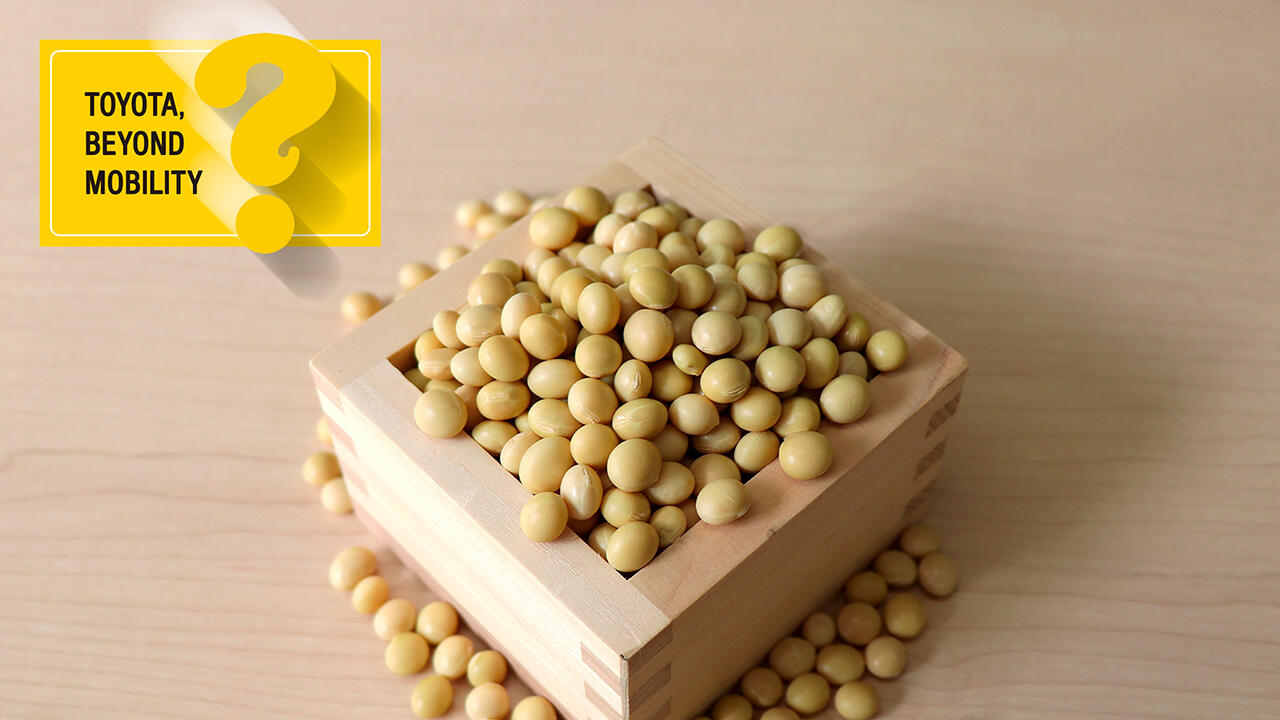
This is a series showcasing Toyota's research in non-automotive fields. This time, we sample the carmaker's homegrown soybeans.
Making the beans work
Development of collaborative products using high oleic soybeans is also underway at Yubasho, a long-established specialty store in Kyoto. Initially, however, the shop’s tofu skin artisans told Toyota that “these soybeans won’t make good yuba.”
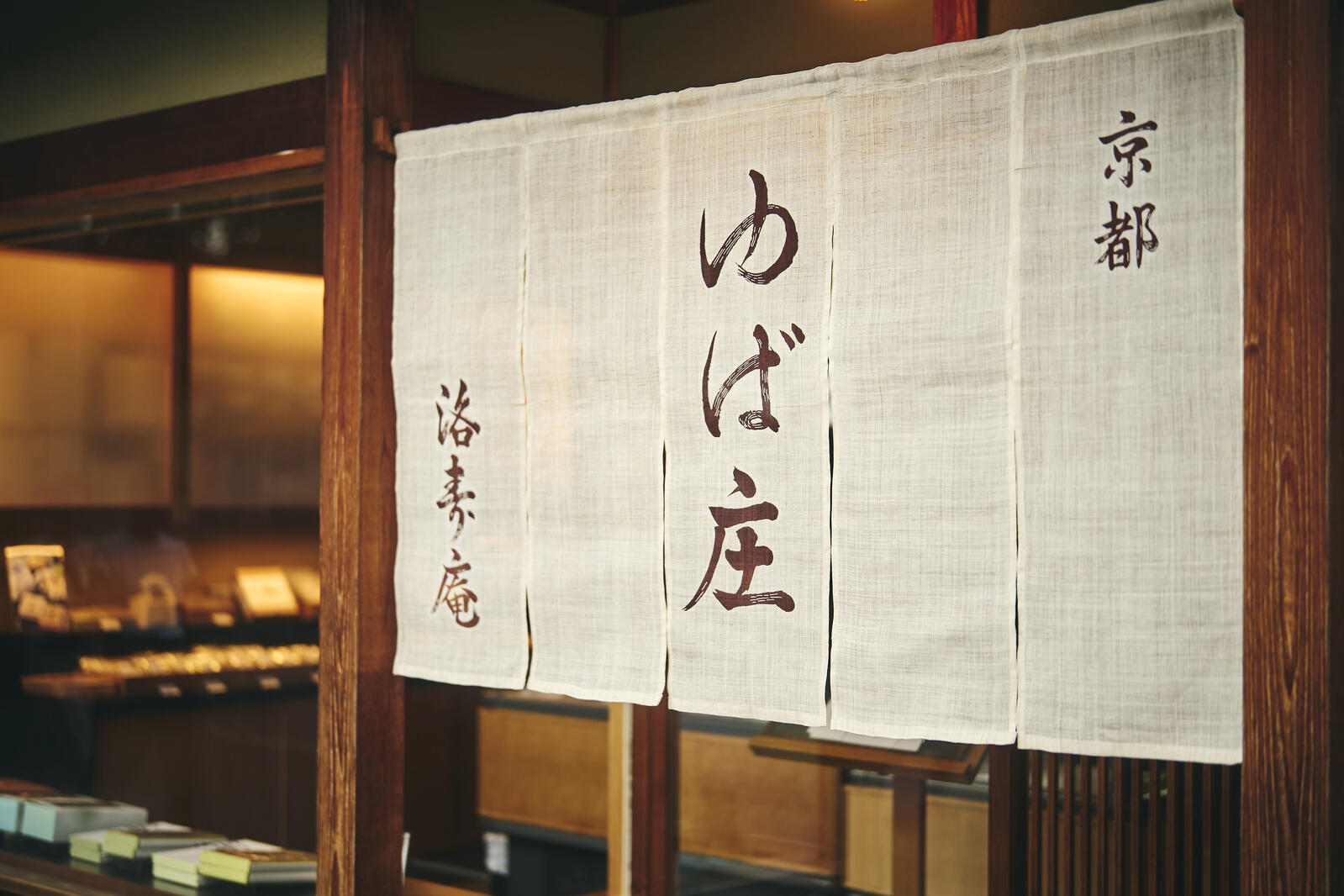
Thankfully, Yubasho President Keiichiro Hashimoto responded with a more positive outlook, noting how “an entirely new type of soybean allows us to make new products.” With that, the development got the green light.
Through trial and error, the artisans distilled the sweetness and aroma of high oleic soybeans into richly flavored creations, such as kumiage yuba and soybean ramen noodles.
Keiichiro Hashimoto, President, Yubasho
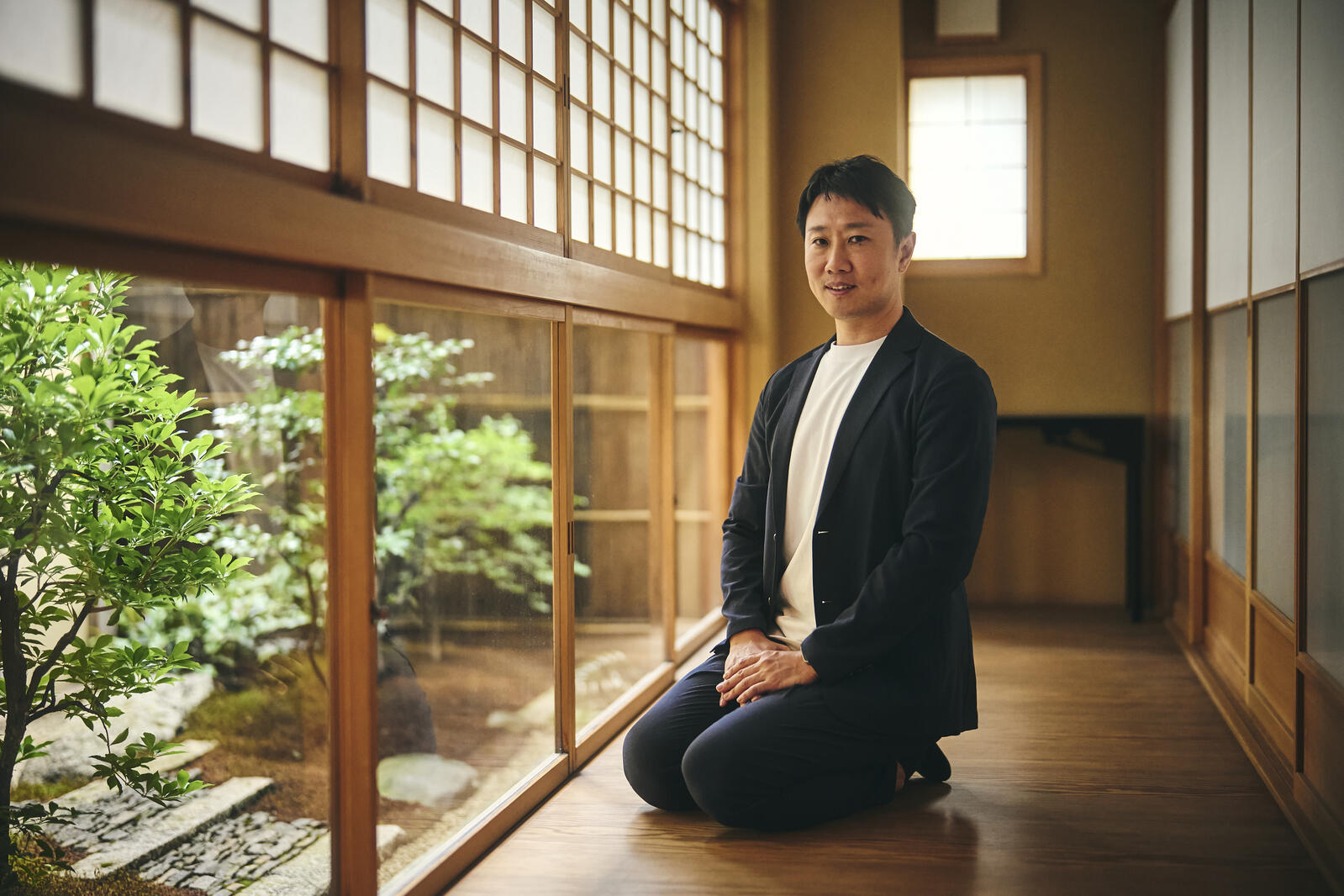
In Japan, soybeans are eaten in a wide variety of ways, from yuba to tofu and miso, and people overseas may find it strange that we have specialty stores for each. This is a testament to Japan’s technical strengths, and I believe we can boost sales further by turning soybeans into high value-added products.
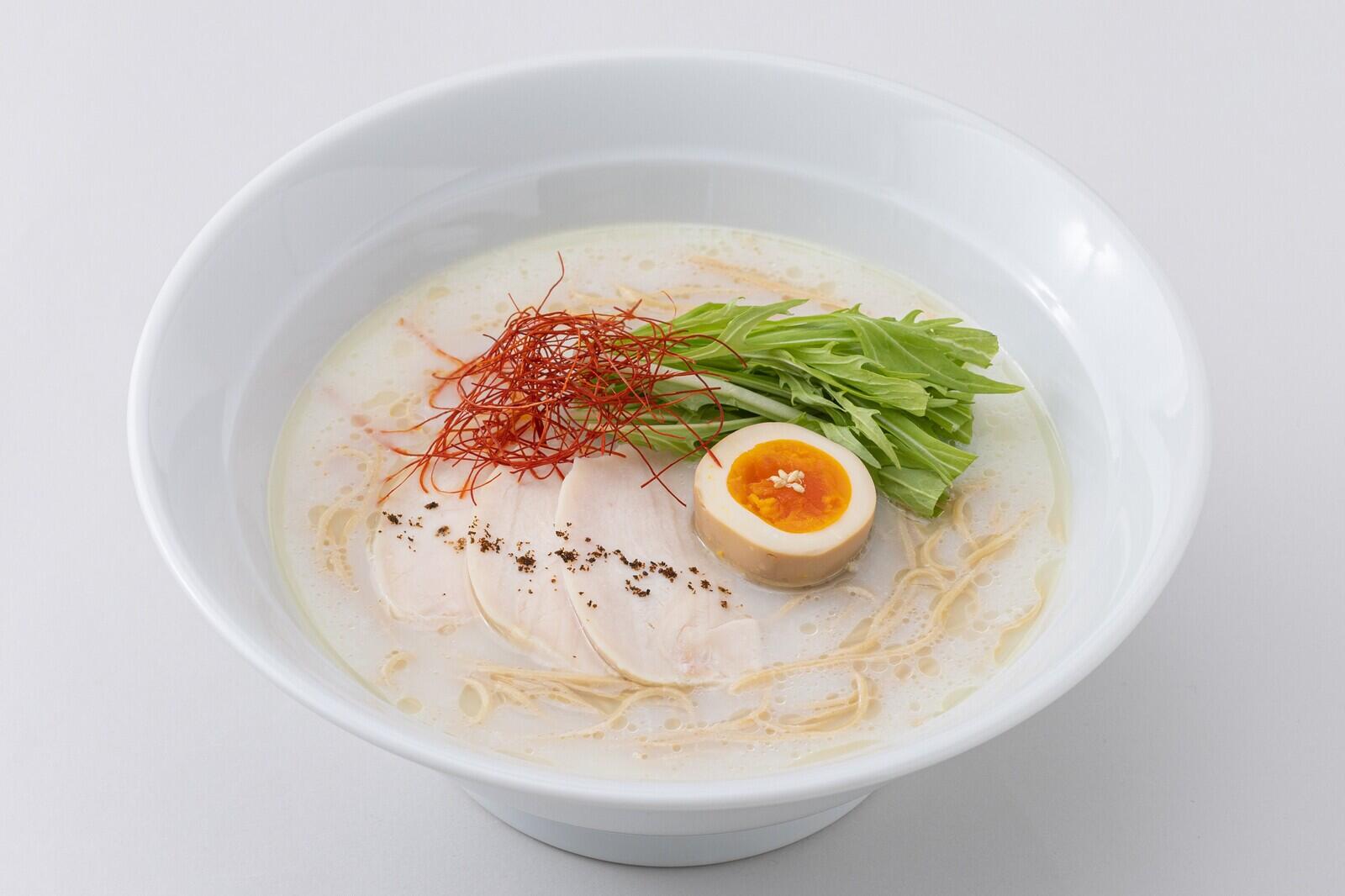
Whereas regular soybean noodles tend to retain a strong taste, these high oleic soybean ramen noodles are wonderful, with none of the grassy flavor. Taking advantage of this soybean type’s characteristics instantly opens up a wide range of uses.
Atsushi Yoshida, Agriculture & Biotechnology Business Div.
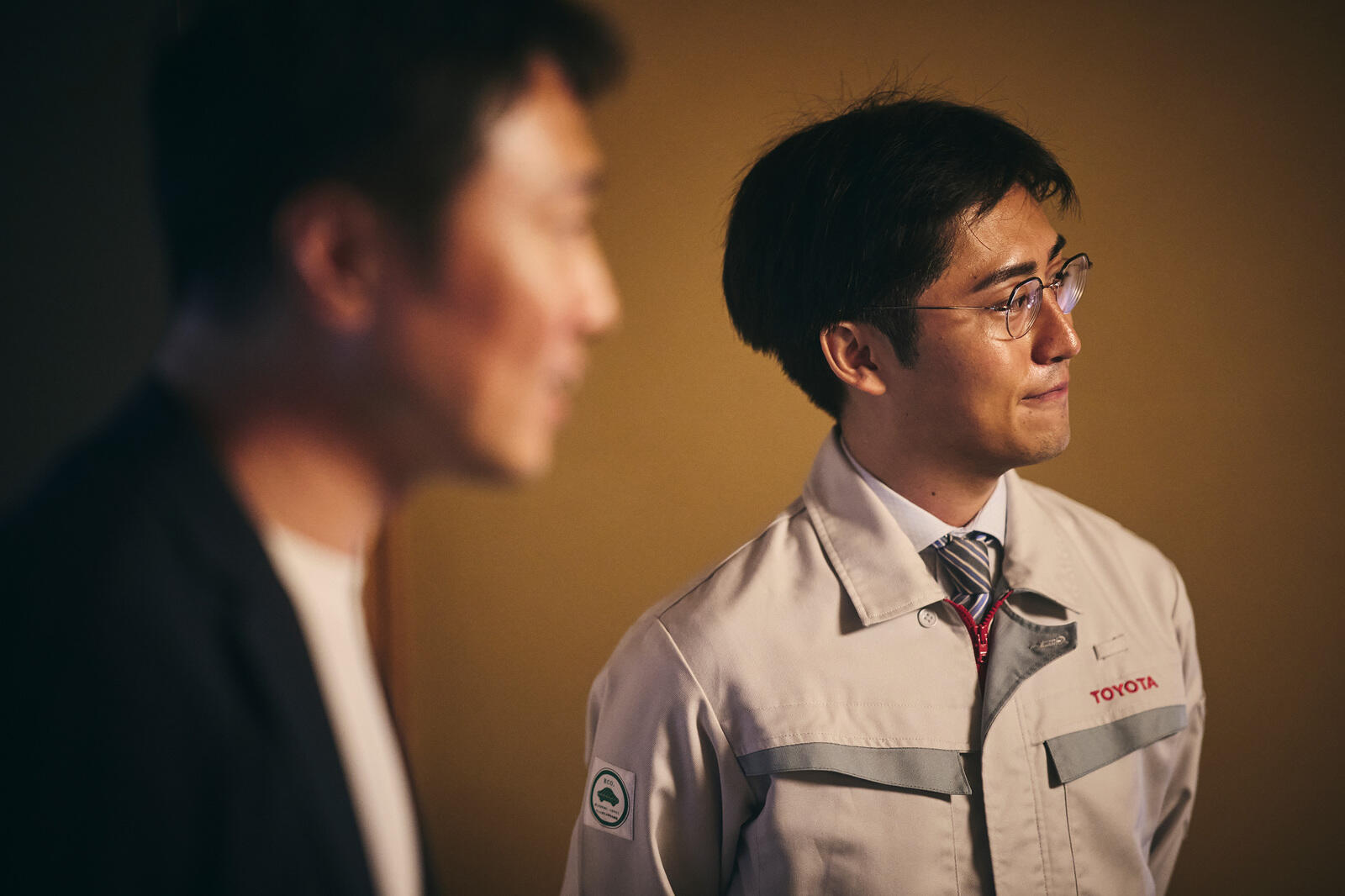
In May, Yubasho also set up a café at the Super Taikyu 24-hour “All-night Fuji” race held at Fuji Speedway.
It offered exclusive Super Taikyu products, including ramen noodles and cream puffs made from high oleic soybeans, which received glowing reviews from Morizo and the ROOKIE Racing team.

Why are so few farmers profitable?
We also headed to Shiga Prefecture to see how Toyota’s collaborative soybean production efforts are unfolding on the ground. We spoke with farm operators who are striving to create a brighter future for Japanese agriculture.
Atsushi Ikari, President, Ikari Farm
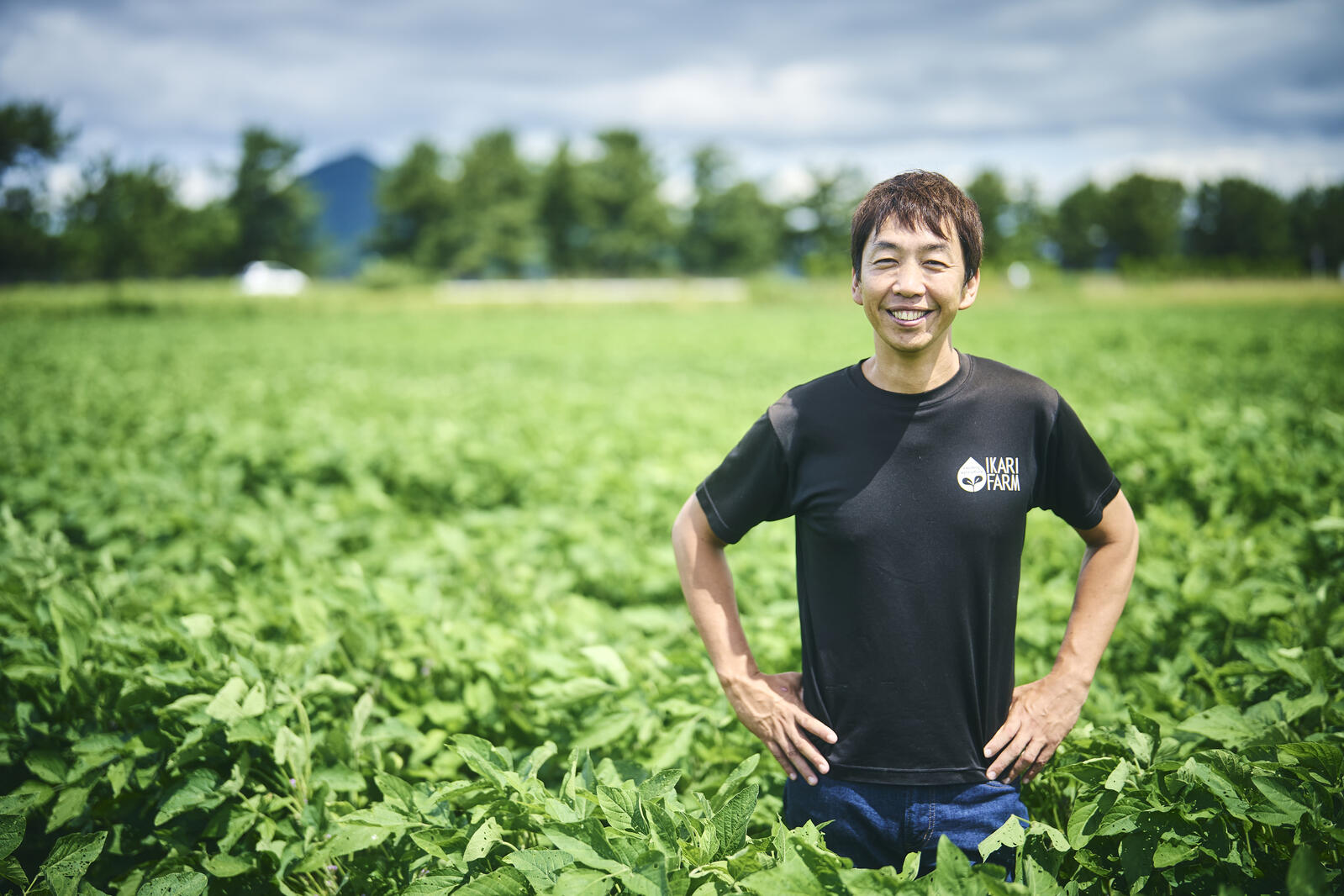
Agriculture is essential for our existence. Our ancestors devoted their lives to protecting this industry. Yet people are increasingly moving away from farming. Even among graduates of agricultural universities, less than 10% become farmers...
In my case, too, after seeing my parents struggle, I had no inclination to follow in their footsteps. But then, while studying abroad at Peking University, a friend from another Asian country convinced me that I should go into farming.
Thinking that money will always be able to buy food is a grave mistake. When food runs out, people die. This advice made me decide to pursue agriculture.
Nonetheless, many Japanese farmers face all kinds of adverse situations. Ikari was determined to take a different approach.
Atsushi Ikari, President, Ikari Farm
I sense that farmers tend to be viewed less positively when they make money. But as a business operator, I’m committed to making my farm profitable. I want to use every extra yen of profit to give back to my employees, partners, and the community.
If you’re cost-conscious, the prospects for agriculture brighten. That’s why Toyota’s systems for boosting productivity through constant improvement resonated with me.
We started by sorting and setting in order, tackling common-sense improvements such as the time wasted searching for shovels or constantly buying more. In the process, everyone’s mindset also changed, as they realized that not noticing problems is itself a problem.
When we received the proposal to cultivate high oleic soybeans, there was a clear concept, and I felt that high value-added soybeans offered a rewarding challenge. We’re excited about future developments, including high-yield varieties.
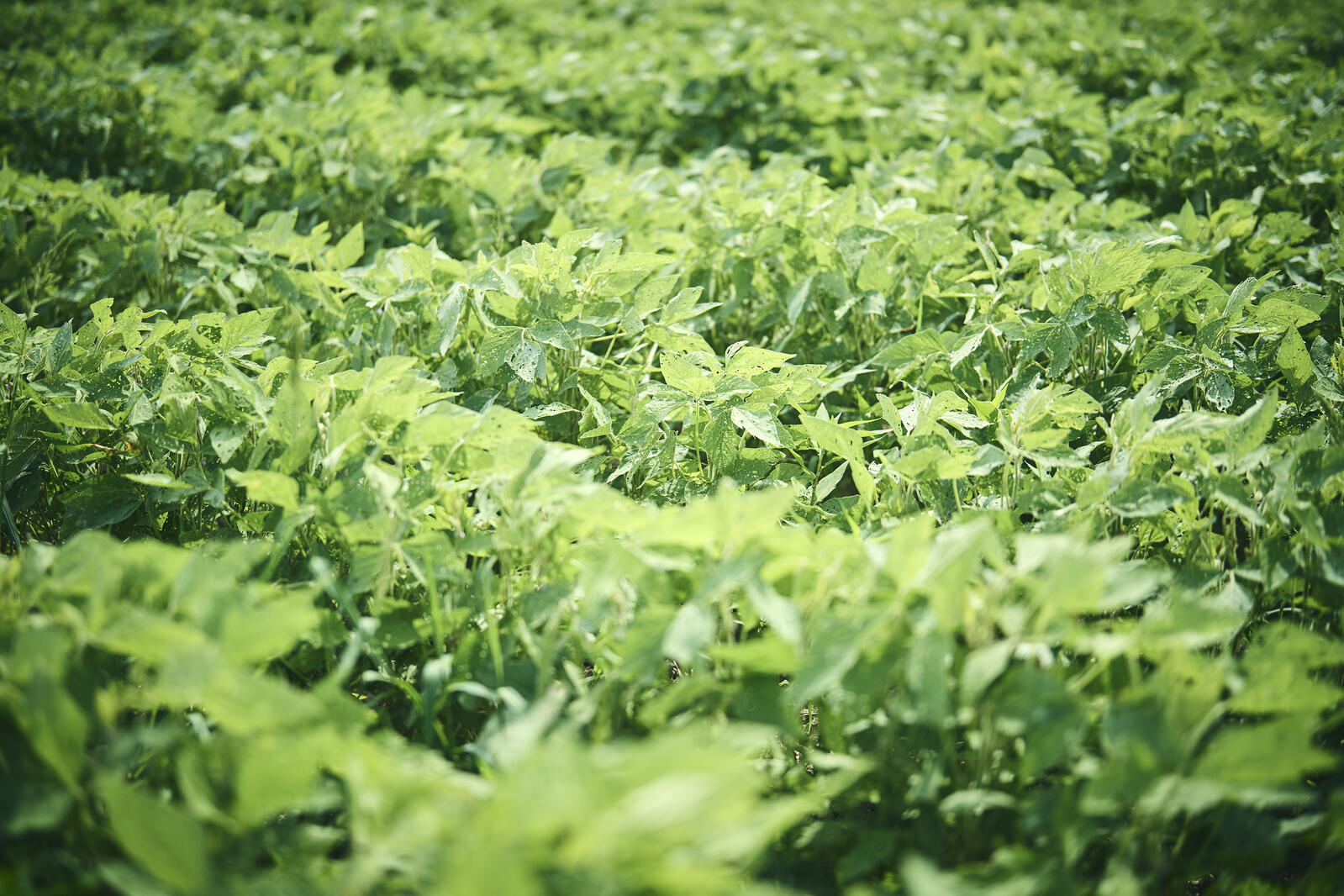
Finally, we asked the Toyota staff why they go beyond merely developing crop varieties to working with partners on product development.
Yasuyo Shimamoto, Assistant Manager, Agriculture & Biotechnology Business Div.
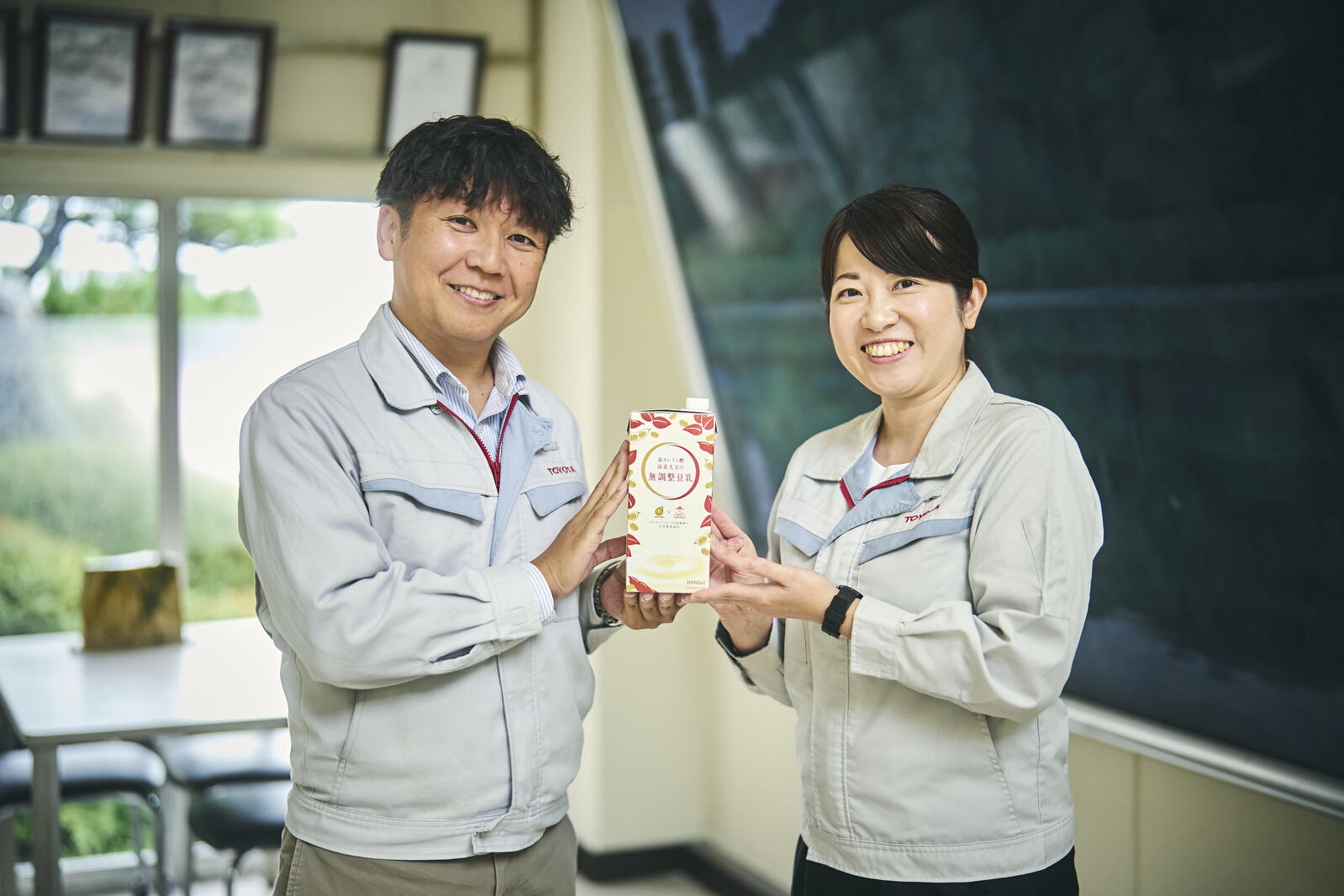
Simply developing a new variety doesn’t get it out into the world—you need to work on creating products that harness the soybean’s benefits.
If we integrate every part of the process, from variety development to cultivation support and product development, we can make everyone happy—producers, manufacturers, and consumers. I think that would energize the entire agricultural sector.
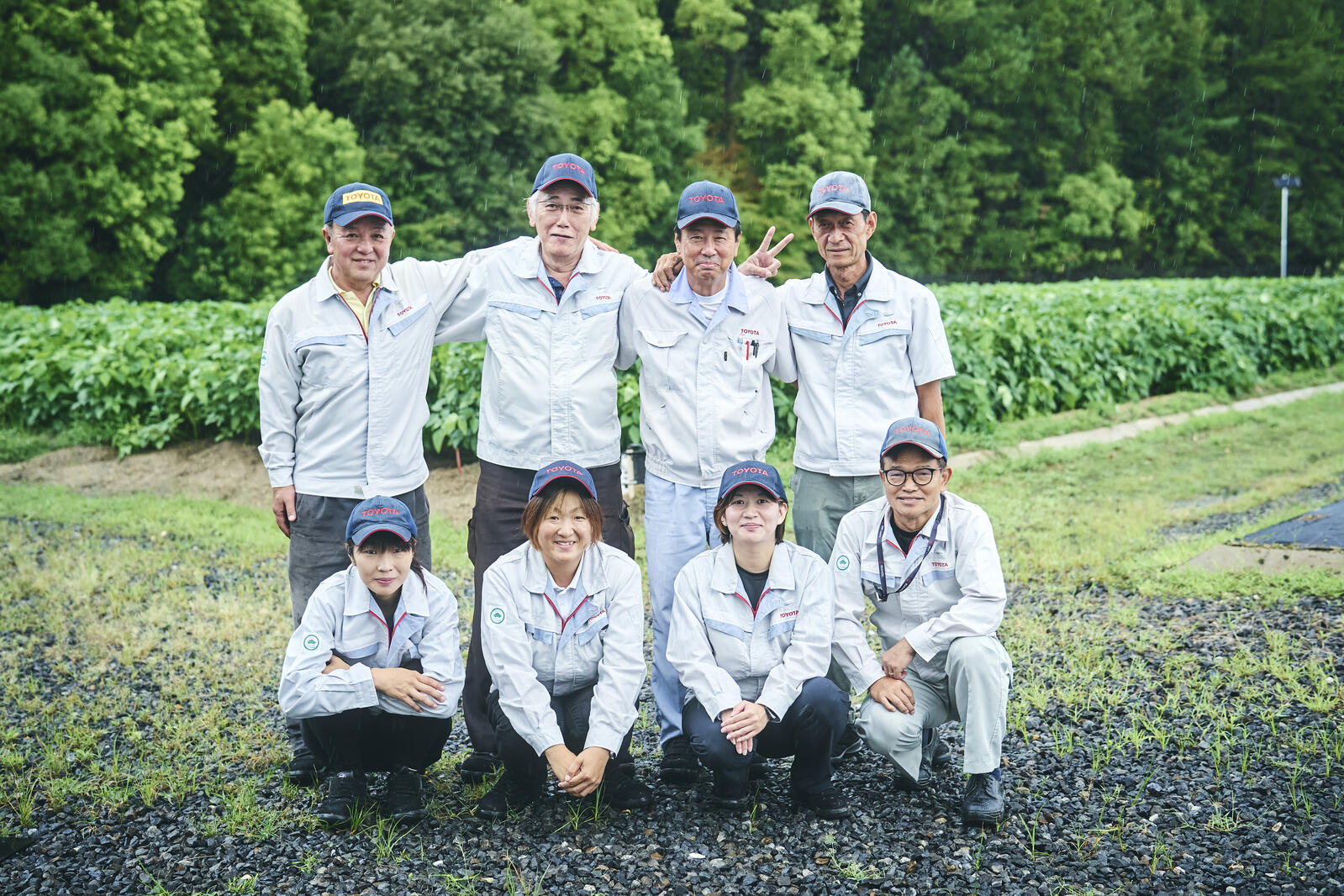
Toyota’s agriculture & biotechnology business remains relatively unknown. Yet the team’s steady efforts have brought new partners on board, spurring innovations in products not typically made with soybeans, such as ramen and bread.
Staying true to the HAPPY AGRI name, the ongoing initiative brings many smiles to farmers and consumers alike.

